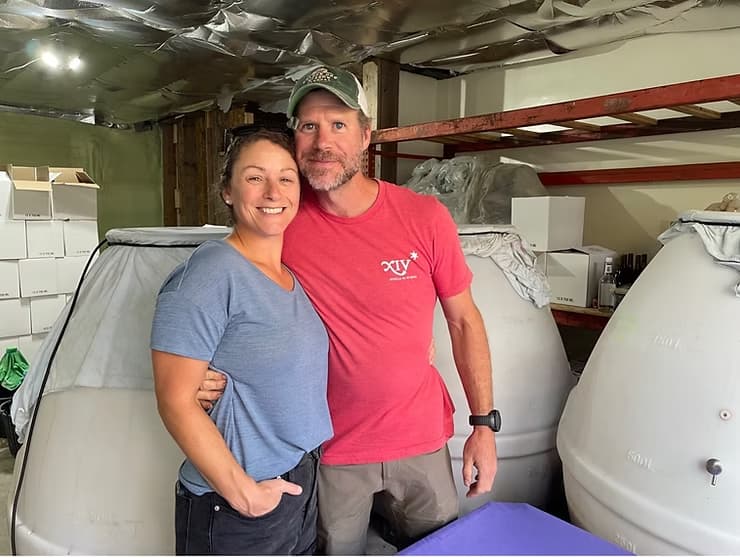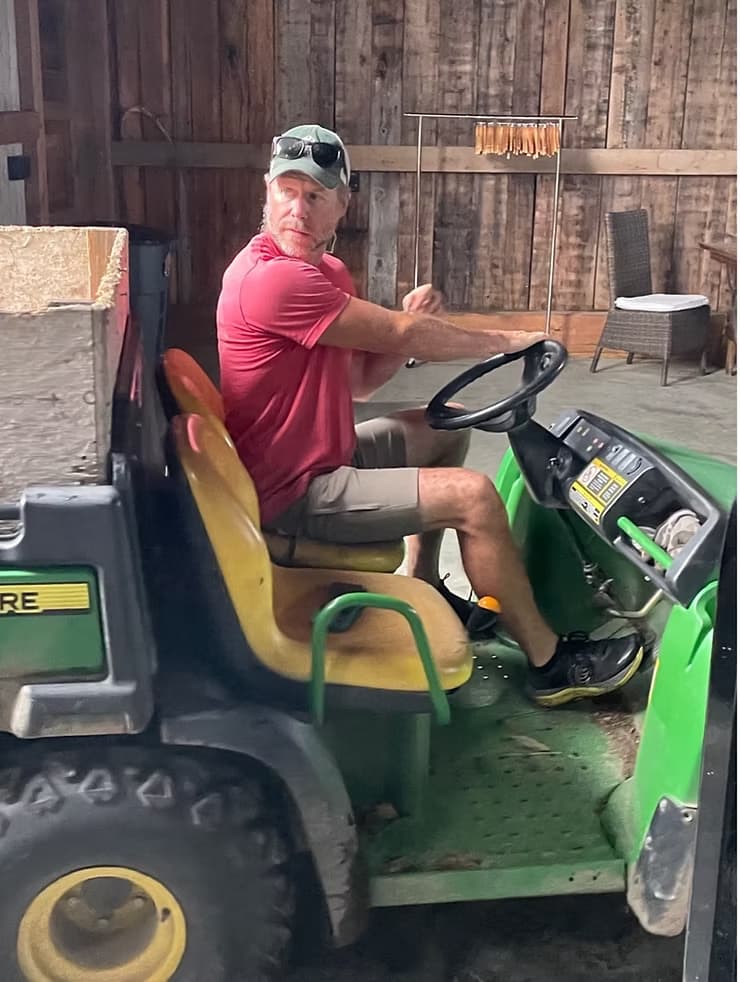By Jerry Kolins, MD, DipWSET, Certified Sommelier
Many of us who participate in The Vine Society’s wine tastings will remember classes taught by David Keck, MS. One of my favorite courses was on the wines of Burgundy, which he taught. He started us off by asking if the first wine demonstrated any noticeable fault. Roger Gerhardt, a fellow wine collector, immediately shouted out, “Yes, the wine is not red.” From there, the humor, curiosity, and enjoyment escalated.
In 2020, around the time the COVID pandemic was poised to transform the restaurant business, David relocated from Texas to establish his vineyard and winery in Jeffersonville, Vermont. Yes, I said he decided to start a wine business in a climate that regularly sees winter temperatures of minus 20°F or colder. This magnitude of cold is lethal to Vitis Vinifera and the varietals we commonly enjoy. It takes a hybrid to survive these freezing temperatures.
David’s Stella XIV Winery commemorates Vermont as the fourteenth State in the Union. I subsequently learned that it was my home State of New York that objected to Vermont joining the Union at the time of the Declaration of Independence. Apparently, New York considered Vermont part of their State. Vermont did not see it that way and wrote its own constitution and called itself the Republic of Vermont—until 1791. That’s when New York was put in its place.
The wines of Vermont are not covered in any Court of Master Sommeliers program. Perhaps we will have an opportunity to learn about these wines at the Vine Society programs sometime in the future. Only the adventuresome and curious have heard of these cold-hardy, disease-resistant hybrid varietals.
The University of Minnesota and other research centers have been making hybrid grapes. This is accomplished by cross-pollination between two different Vitis species, one of which is Vitis vinifera, and the other possesses properties such as cold tolerance and/or disease resistance. The selection process has yielded vines with DNA that codes for cold tolerance, capable of surviving temperatures worse than the coldest Vermont winter. Unfortunately, a single varietal, unhybridized cold-tolerant grape does not make a tasty wine. However, when these species are hybridized with Vitis Vinifera, the vines can be planted in a variety of inhospitable climates and produce a successful crop, yielding delicious wines.
David has planted approximately 14 acres of vines on two separate sites and made wines from hybridized grapes such as Frontenac Blanc (not Roger’s first choice) and the red wine from the Marquette grape. We enjoyed the 2024 Wild Child sparkling rosé made from a blend of Frontenac Noir and Marquette grapes. This is a Pet-Nat wine (Pétillant Naturel style), meaning that the wine is fermented and carbonated in the bottle. Hence, it is sealed with a crown cap to contain the pressure and exhibits a dark rosé color, which I paired with a steamed Maine lobster.
A visit to Vermont during the fall foliage season allows “leaf peepers” to visit the Jeffersonville vineyards and taste Stella XIV wines that are rarely found outside the State of Vermont. If you choose to stay in Burlington, head for the Hotel Vermont where you will find Stella XIV wines.
If this lifestyle appeals to you, your DNA qualifies you as most hardy and fearless. In 2023, freezing temperatures in May damaged grape buds, resulting in a considerable loss of the crop. As David once told me, if you cannot make a profit in the vineyard, you are just gardening. To be a successful estate, you must be a successful farmer.
The vine and wine experience has a romantic component. It’s the fearlessness component I lack. Yet, I can enjoy participation in the Stella XIV experience by signing up for their Ambassador Program. One can actually invest in a portion of the vineyard, assist in selecting the hybrid varietal to plant, and issue one’s own label. Of course, I know how to consume wine—not actually make it. I leave all this to the Master Sommelier. If this sounds appealing, check out the Stella14 Ambassador Program.
The Vine Society is bringing David and two other prominent master sommeliers back to educate us. The Wine Summit will be held at the Cain Center for the Arts in Cornelius, NC, on December 12, 2025, and will feature Max Kast, MS, David Keck, MS, and Larry O’Brien, MS, amongst other winemakers and importers. For more information, please visit the Wine Summit page.
And, if you happen to be interested in pairing wines with college football events, my recommendations can be found at www.vineandvictors.com.


Originally published on the Vine Society website
Leave a Reply